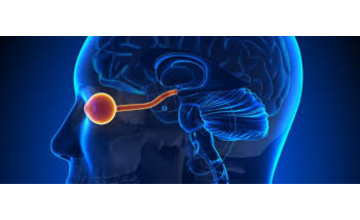- Email: info@swarupeye.com
- Hyderabad
- Call: +918886309030
Neuro Ophthalmology
NEURO-OPHTHALMOLOGY
Our eyes are windows to the world, but they're also intricately connected to the brain. There's a specialized branch of ophthalmology that combines the study of vision and the nervous system — Neuro-Ophthalmology.

What is Neuro-Ophthalmology?
Neuro-ophthalmology is a specialized field that focuses on diagnosing and managing eye disorders related to the nervous system. The eye is directly connected to the brain via the optic nerve, which is responsible for transmitting visual information. When neurological issues impact this connection, it can lead to visual disturbances, eye movement disorders, or even vision loss.
Symptoms:
- Vision Loss:
- This can be sudden or gradual, affecting central or peripheral vision.
- Transient vision loss (temporary episodes) is also a significant symptom.
- Double Vision (Diplopia):
- Seeing two images of a single object.
- Blurred Vision
- Color Vision Changes:
- Difficulty distinguishing colors.
- Visual Field Defects:
- Blind spots or loss of parts of your visual field.
- Difficulty Moving the Eyes:
- Limited eye movement in one or more directions.
- Squint (Strabismus):
- Misaligned eyes
- Especially if it occurs suddenly in adults.
- Nystagmus:
- Involuntary, rapid eye movements.
- Droopy Eyelids (Ptosis)
- Headaches:
- Especially severe or persistent headaches.
- Eye Pain
- Bulging Eyes
Why Choose Swarup Eye Centre for Neuro-Ophthalmology Services?
Swarup Eye Centre in Hyderabad is equipped with state-of-the-art technology and staffed by experienced neuro-ophthalmologists, providing patients with comprehensive care. Here's what sets them apart:
- Expertise and Experience:
- The centre boasts a team of highly qualified neuro-ophthalmologists who possess specialized knowledge in diagnosing and managing complex neuro-visual disorders.
- Advanced Diagnostic Tools:
- Swarup Eye Centre utilizes cutting-edge diagnostic equipment, including:
- Optical coherence tomography (OCT) to visualize the optic nerve and retinal nerve fiber layer.
- Visual field testing to map out areas of visual loss.
- Pupil examination and testing.
- Ultra wide view Fundus photography
- Comprehensive Treatment: Swarup Eye Centre provides a holistic approach to treatment, combining medical, surgical, and rehabilitation options for neuro-ophthalmological conditions.
- Collaboration with neurologists and neurosurgeons for the management of brain tumors, strokes, and other neurological conditions affecting vision.
- Patient-Centric Approach: Swarup Eye Centre prioritizes patient comfort and understanding. The team takes the time to explain diagnosis and treatment plans clearly, ensuring patients are actively involved in their care.
The Importance of Early Diagnosis and Intervention:
If you are experiencing any concerning visual symptoms, don't hesitate to seek professional help. Early diagnosis and treatment can significantly improve outcomes and preserve vision. Schedule a consultation with the neuro-ophthalmology team at Swarup Eye Centre to receive a thorough evaluation and personalized care plan.
Expert Consultation at Swarup Eye Centre:
At Swarup Eye Centre, our neuro-ophthalmology team understands the complex relationship between the eyes and the nervous system. We take a multidisciplinary approach to diagnose and treat conditions that affect both your vision and neurological function. Our specialists work closely with neurologists, neurosurgeons, and other medical professionals to provide comprehensive care for even the most challenging cases.
Frequently Asked Questions
- What conditions does a neuro-ophthalmologist treat?
Neuro-ophthalmologists treat conditions such as optic neuritis, ischemic optic neuropathy, visual field defects due to brain injuries, double vision, unexplained vision loss, and abnormal eye movements. - When should I see a neuro-ophthalmologist?
You should consider seeing a neuro-ophthalmologist if you experience unexplained vision loss, double vision, visual field defects, abnormal eye movements, or if you have neurological conditions like multiple sclerosis that may affect your vision. - What can I expect during a neuro-ophthalmology examination?
A typical examination includes a detailed medical history review, vision testing, eye movement and alignment assessment, pupil response evaluation, visual field testing, and possibly advanced imaging like OCT or neuroimaging. - How do neurological conditions affect vision?
Neurological conditions can affect vision in various ways, including causing optic nerve inflammation, disrupting eye movement control, affecting visual processing in the brain, or causing pressure on visual pathways.
